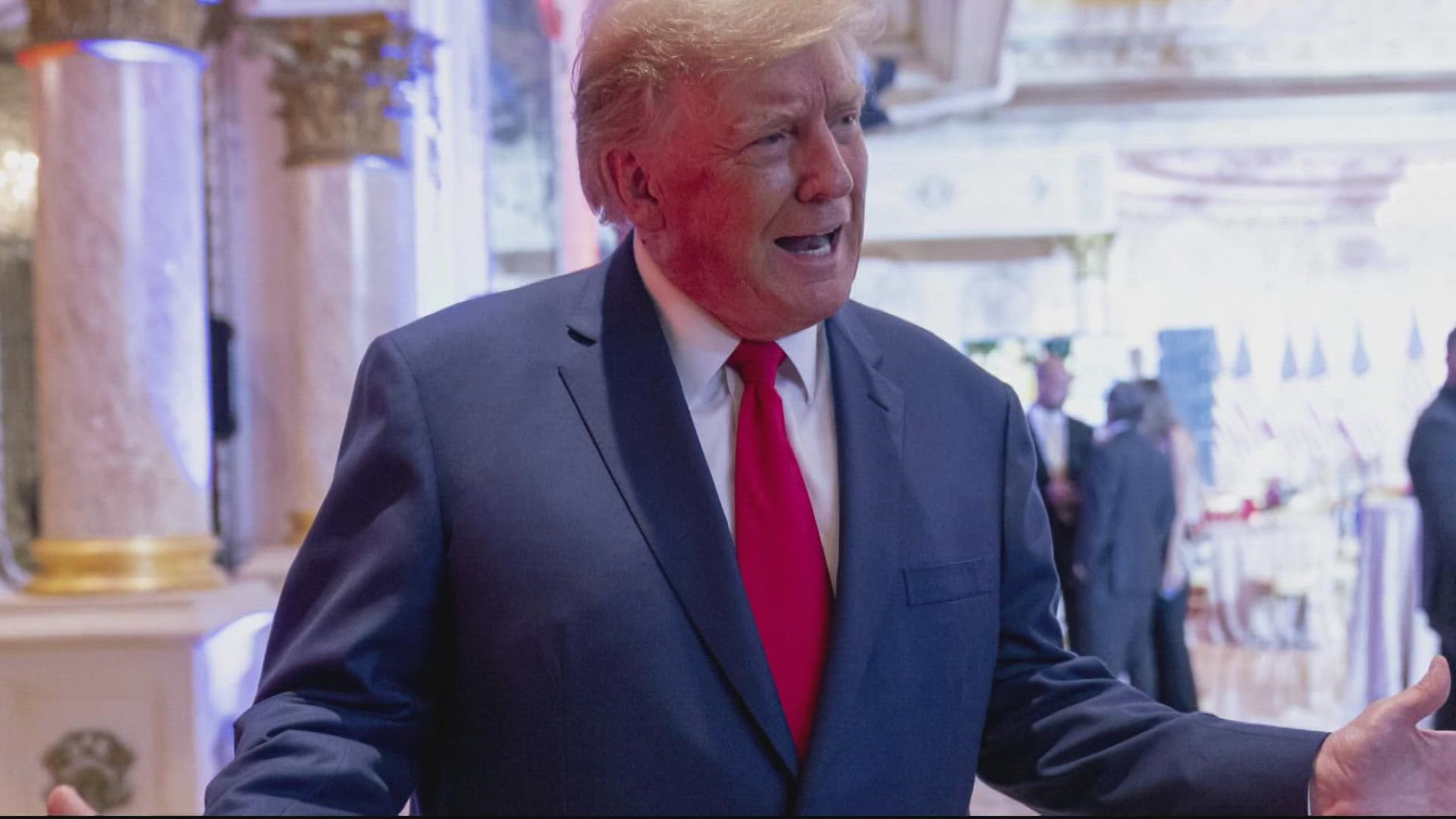WASHINGTON — One week after Americans headed to the polls to cast their final votes in the midterm elections, former president Donald Trump said Tuesday that he will mount a third White House campaign, launching an early start to the 2024 contest. But how would this time around be different?
THE QUESTION:
What would the term rules be around another Trump presidency?
THE SOURCES:
WHAT WE FOUND:
Presidential term limits are established in the 22nd Amendment, and in this case, it’s the first part that’s most relevant:
“No person shall be elected to the office of the President more than twice.”
That means if former President Donald Trump were to win 2024, he would not be eligible to run again in 2028.
“[The 22nd Amendment] does prevent, to some extent, a kind of caudillo, right, this sort of strongman from coming to power for too long a time,” said George Washington University political professor Matt Dallek.
These weren’t always the rules though: President Franklin Delano Roosevelt was elected to four terms. According to the National Constitution Center, interest in limiting presidential power after FDR’s tenure eventually led to the ratification of the 22nd Amendment in 1951.
Pros and cons of term limits are debated to this day, and Republicans and Democrats have floated the idea of repealing the 22nd Amendment over the years. No proposal has ever been up for serious consideration.
“It would be very hard…to achieve a kind of consensus that doesn't exist in the country to repeal an amendment,” said Dallek. “Nowadays, you could see both Democrats and Republicans for different reasons, supporting a term limit on the president.”
If Trump wins, he’d be the first President in more than 130 years to move back into the White House. After losing a bid for re-election after his first term, Grover Cleveland is the only president to have been elected to a non-consecutive second term.
About those ongoing investigations involving the former President: would a campaign for office have an impact? RNC chair Ronna McDaniel said in a television interview earlier this month, it would mean the Republican party could no longer foot the legal bills for an active candidate–not even the former president.

